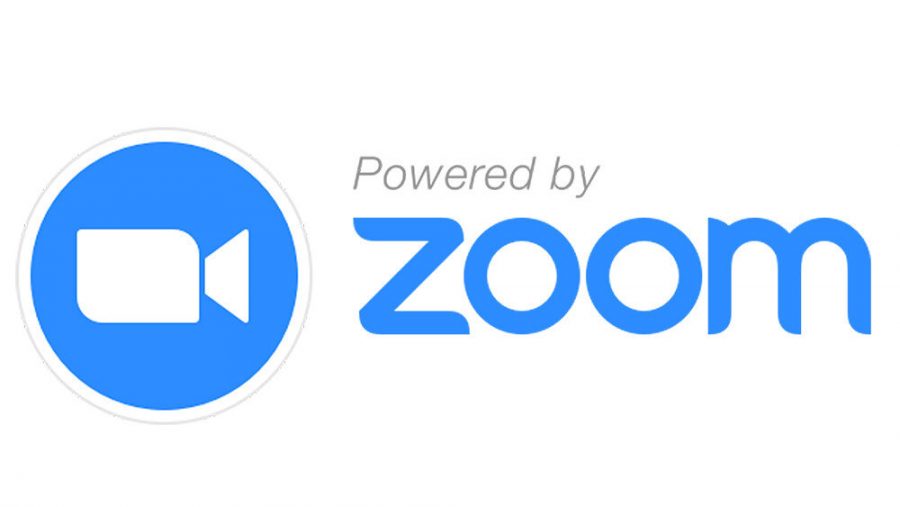New threat of ‘Zoombombing’ sparks safety concerns amid coronavirus pandemic
April 18, 2020
The term “Zoombombing” has been used to identify a phenomenon where users are having their meetings interrupted by unknown accounts that display hate speech or grotesque images.
“The FBI has received multiple reports of conferences being disrupted by pornographic and/or hate images and threatening language” said the agency in a statement.
Hackers have utilized several of Zoom’s features to interrupt and disturb the meetings they are able to infiltrate. Most commonly, hackers have been using their microphones to verbalize racial slurs and the screen share function to display pornography or other inappropriate content. In some reported cases, however, the hackers have used the annotation function to write offensive language or draw hate symbols on screens being shared to all members of a Zoom meeting.
Several of the reported cases of “Zoombombing” have come from classrooms that have been forced to permanently shift to the online platform. An incident that took place in late March of 2020 in a Massachusetts high school class had an unknown user dial into the meeting and yell out profanities along with the teacher’s address, according to the aforementioned FBI statement. During a class session on Zoom with students from Wolf Lake Middle School in Orange County, Florida, a man reportedly gained access to the online meeting and exposed himself to the students, according to CNN affiliate WKMG.
Additionally, multiple organizations and support groups that have been forced to communicate through Zoom have fallen victim to “Zoombombing” raids. A meeting conducted by the Concordia Forum, a global organization composed of Muslim leaders, was interrupted by a perpetrator who wrote and shouted racial slurs while displaying pornographic content on a shared screen. Moreover, several Alcohol Anonymous meetings that have shifted to Zoom have been consistent targets for hackers because sessions often have no password and are open to all.
With millions utilizing the interface on a daily basis and “Zoombombing” incidents becoming more common, there is now an increasing number of people calling for a crackdown on these hackers and Zoom to implement stronger security measures on their platform.
“Over the next 90 days, we are committed to dedicating the resources needed to better identify, address, and fix issues proactively,” said Zoom CEO Eric Yuan in blog post on April 1. Zoom “We are also committed to being transparent throughout this process. We want to do what it takes to maintain your trust.”
Zoom will continue offering training sessions and free daily webinars to inform users on how to remain safe, while also beginning to work “with third-party experts” in cyber security to enhance the platform’s security measures, Yuan explained. Although the vulnerability of Zoom’s platform was a major reason why this phenomenon gained traction, most of these hackers were able to organize and communicate efficiently on other social media sites and web apps.
“An analysis by The New York Times found 153 Instagram accounts, dozens of Twitter accounts and private chats, and several active message boards on Reddit and 4Chan where thousands of people had gathered to organize Zoom harassment campaigns, sharing meeting passwords and plans for sowing chaos in public and private meetings,” Taylor Lorenz and Davey Alba of The New York Times said.
Discord, a web app that is primarily tailored to the video game community, has also allowed some hackers to create private group chats where members organize “Zoombombing” raids through messages or voice chat.
“The Times discovered 14 active Discord chats with dozens of messages sent a minute, with the most popular chat hosting over 2,000 people.”
These chats, websites, and Instagram accounts with tens of thousands of followers are where hackers communicate with fellow conspirators, share Zoom meeting links, and compete to see who can create the more dissonance in the conferences they infiltrate.
A spokesperson for Discord spoke with The New York Times and reassured that the company “strongly [condemns]” the use of the platform as a means to organize or supplement any “Zoombombing” raids.
“‘We will block hashtags used to coordinate zoombombing and remove accounts created solely for the purpose of zoombombing when we see them,’” a Facebook spokesperson that also spoke with The New York Times said.
Although measures are being taken from several parties to enhance the safety of all users on Zoom, teachers in many states are being encouraged to use other platforms for remote learning. With all social interactions for everyone now taking place on digital videoconferencing platforms for the foreseeable future, the shift to alternative programs other than Zoom for many could be imminent.








